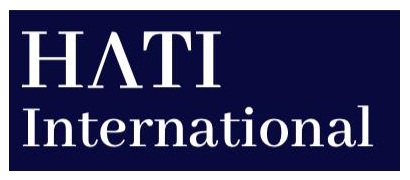The ‘Must-Have’ Modules of A Hospital Management System
In recent years, the healthcare services industry has undergone a sea change in the way it functions and provides services to patients. Traditional methods of functioning which involved manual filling up of forms and physical movement of patient’s records between siloed departments have now given way to paperless methods of recording patient information and increased collaboration between different departments. In this era of digitization, use of technologies, such as Cloud, IOT, and predictive analytics has paved way for a patient-centric approach to treatment. More and more hospitals are embracing newer technologies to provide world-class service to their patients and are adopting Hospital Management Systems (HMS) to make hospital management paperless, seamless, and efficient.
There are numerous other benefits of having an HMS. Managing patient data becomes easier as records are stored in a centralized location. Patient records can be accessed and retrieved quickly both by doctors and administrative staff. Hospitals have a mandate to store all the patients’ records owing to regulatory drivers. As HMS systems are integrated with Insurance providers, claims settlements are faster. It is scalable and can easily accommodate futuristic expansion plans of the hospital without having to increase human resources. All these factors have led to an increase in the satisfaction level for patients and lower costs for patients, payers, and hospitals.
The South East Asian region, especially Malaysia has been quick to adopt newer methods of managing health care services in their country. The healthcare industry in Malaysia has undergone a series of transformations since its independence. Providing good quality health care services to its citizens is a primary concern for the government and as a result, the standard of healthcare in Malaysia is almost at par with those of developed countries. As more and more hospitals embrace cloud-based Hospital Management Systems, these hospitals are able to provide quality treatment to their patients at affordable costs.
This blog discusses some of the ‘must-have’ modules of a Hospital Management System.
Patient Management
Registration
Each patient that visits the hospital is registered before he or she goes in for a consultation. The Registration module helps the reception staff capture personal, medical, family, and demographic details of patients during the patient’s visit to the hospital. A unique ID is generated for each patient after his or her registration. This ID is used to track and maintain the patient’s medical history and diagnosis. This module helps the admin staff to generate token numbers for doctor’s appointments, print the patients’ case paper and identity card with barcode and photograph for easy tracking. generate bills covering registration charges and doctor’s consultation. It also maintains a list of rosters of various doctors and checks the availability of those doctors at different times.
Out Patient Department
The Out Patient Department module helps maintain a list of appointments for each day. It provides the ability to book multiple appointments in a day for varied departments, such as doctor appointment, laboratory or radiology. SMS and alerts are sent to patients informing them about their appointments. Patients can indicate their preference of appointment time. Appointments can be rescheduled upon request.
In Patient Department
The In-Patient Department module helps manage the complete cycle of indoor patients – from admission to discharge. It provides a count of beds occupied and class-wise bed allocation and enables a search on the availability of beds. The IPD attendants can view patient occupancy status of room/wards, which helps IPD staff make quick informed decisions about patient placement – from admission, transfer, internal transport, and discharge. It helps issue discharge summary to patients at the time of discharge.
It also maintains a record of interdepartmental consultation with multiple doctors in the hospital and links newborn medical records with maternal data records
Operation Theatre Management
The Operation Theatre Management module helps manage operation theatre bookings for surgeries and helps in their smooth functioning. It allows the OT admin staff to prepare for a surgery by creating checklists of surgical equipment required. It updates the team of doctors, anaesthetics, and consultants required for the surgery. It helps coordinate with the blood bank in case blood is required for the surgery. It helps coordinate with laundry and housekeeping staff for linen and other requirements. It maintains a record of the items consumed during a surgery, and generate a bill post-surgery. It sends out requests for periodic maintenance of operation theatres.
Electronic Health Records Management System
Electronic Health Records Management System stores and manages patient records, treatment records, investigation reports, diagnosis reports, billing, inventory for easy tracking and quick retrieval. These records can be retrieved in various formats for use by different departments and reduce the chances of error. It helps the admin team do a quick search for patients with various search string combinations.
Health care providers can be more proactive by giving complete the patients the information about their medical history and send them alerts or messages about their appointment schedules, follow-up visits, self-care instructions and so on.
eInsurance and Mediclaim
The eInsurance module helps to verify the eligibility of a patient for cashless admissions or for reimbursement in case of TPA and process the settlement of bills online. It is integrated with other modules to obtain the discharge summary and other billing details.
Billing and Finance
The Billing module manages all the aspects of financial transactions during a patient’s treatment path. The billing team can:
- Generate and issue invoices for any services availed by both IPD and OPD patients
- Provide refunds against advance payments before closing the invoice
- Generate MIS reports covering summary reports of OPD and IPD, cash flow analysis, bank reconciliation, and aging reports that give useful insights into the hospital’s financial efficiency
The Finance module helps the finance team manage cash inflow and outflow, accounts payable and receivables, process purchase orders and manage the overall hospital budgets.
Hospital Analytics
The Hospital Analytics module helps to provide useful insights into the huge amount of data collected in the hospital. By having medical tests, diagnosis, lab reports and prescribed medications for patients on a single dashboard, clinicians can make informed decisions about patient care. These insights also help clinicians study various trends and accordingly make changes to improve the quality of health care being provided in the hospital. The data collected can be used to generate graphical interpretations of Clinical Performance indicators of the Hospital such as increase or decrease in the number of readmissions, deaths in hospitals because of medical errors, patient satisfaction, hospital costs etc.
Other Departments
The other key departments in the hospitals are Pharmacy, Laboratory, and HR. The Hospital Management System should be able to connect these departments and help in the smooth functioning of these.
Pharmacy
The Pharmacy module helps manage inventory of medicines and other medical devices used by the hospital. It allows store managers to raise purchase orders to vendors for ordering fresh supplies, generates alerts when stocks reduce below a pre-defined level, and generate reports for opening and closing stock balance, batch tracking, expired and damaged items, Purchase Order, and Material Issue.
Laboratory
The Laboratory module allows the lab technicians to record and maintain the details of various tests conducted for both OPD and IPD patients. The results of these tests are directly emailed to patients and also shared with doctors for quick viewing. It provides access to the complete clinical history of patients to authorized users and healthcare providers. It also allows lab department to manage their workflows smoothly.
HR
The Human Resources (HR) module helps manage all areas related to hospital resources (including doctors, nurses, consultants, and non-medical staff) such as daily attendance, leaves, salary and incentives, resource engagement and scheduling. It also generates pay slips and payroll reports.
The one-size-fits-all approach does not work for Hospital Management Systems. The choice of the system depends on the requirements of your hospital and the business goals. We hope this blog gives you an idea about various modules which you can look for during your evaluation.





Thanks for sharing…!!!